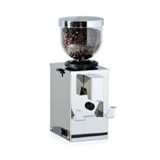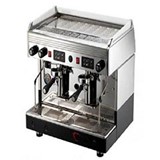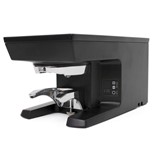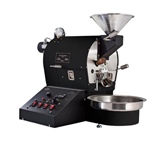In the bustling world of coffee businesses, there exists an unsung hero that often remains hidden behind the scenes—a reliable and efficient commercial coffee machine. In this article, we will embark on a journey to explore the pivotal role that commercial coffee machines play in transforming your coffee business into a thriving success. Our tone throughout this article will be informative, professional, objective, formal, technical, clear, concise, neutral, and authoritative, ensuring that you gain a comprehensive understanding of the subject matter.
I. Art of Craftsmanship: Incorporating Latte Art and Creative Presentations
A. The Visual Appeal of Latte Art
-
Understanding the Basics
- Latte art is a skilled technique involving the pouring of microfoam into a shot of espresso, resulting in intricate designs on the coffee's surface.
- It's a combination of steamed milk and espresso, creating contrast through varying densities of milk foam and coffee.
- Key elements of latte art include the heart, rosette, and tulip designs.
-
Elevating Customer Experience
- Latte art adds a visual dimension to coffee, enhancing the overall experience for customers.
- The beauty of latte art lies in its uniqueness; each cup becomes a work of art.
- Customers are more likely to share pictures of their latte art, promoting your coffee business through social media.
B. Creative Presentation Techniques
-
Serving Coffee with Style
- Creative presentation goes beyond latte art and encompasses the entire coffee-serving process.
- Consider unique cups, saucers, and even trays that align with your coffee shop's theme.
- The aroma, texture, and color of coffee can be highlighted through presentation.
-
Enhancing Brand Image
- A well-thought-out presentation reflects a commitment to quality and craftsmanship.
- It sets the stage for a memorable customer experience.
- Consistency in presentation reinforces your brand identity and builds customer loyalty.


Find the right Commercial Coffee Machine
Compare quotes from expert Australian suppliers and make the best choice. It's free, quick and easy!
II. Exploring Specialty Brews: Catering to Discerning Palates
In the realm of the coffee industry, there exists a category of brews that stands out as the epitome of quality and uniqueness: specialty coffee. In this section, we will delve into the essence of specialty coffee, emphasizing its distinct qualities and characteristics. Furthermore, we will examine the pivotal role that commercial coffee machines play in achieving precision brewing and ensuring consistency in flavor profiles.
A. Defining Specialty Coffee
1.Quality and Uniqueness
- Specialty coffee, often regarded as the cream of the crop, is distinguished by its exceptional quality.
- It goes beyond the ordinary and offers a unique flavor profile that captivates the discerning palate.
- The commitment to excellence in every aspect of its production sets specialty coffee apart.
2.Origin and Characteristics
- Specialty coffee's journey begins with the beans themselves, which are sourced from specific regions known for their superior coffee cultivation.
- These beans carry the terroir of their origin, which contributes to the distinct flavor notes and characteristics.
- Tasting notes can range from fruity and floral to nutty and chocolatey, making each cup a sensory adventure.
B. The Role of Commercial Coffee Machines
1. Precision Brewing
- Commercial coffee machines are the architects behind precision brewing, a fundamental aspect of specialty coffee production.
- Precision is achieved through meticulous control of variables such as water temperature, pressure, and extraction time.
- This precision ensures that every cup of specialty coffee consistently delivers the desired flavors and aromas.
2. Consistency in Flavor Profiles
- Maintaining consistency in flavor profiles is paramount in the world of specialty coffee.
- Commercial coffee machines excel in this regard, as they are designed to replicate ideal brewing conditions consistently.
- Customers who seek the unique taste of specialty coffee can trust that their experience will be consistent, cup after cup.
III. Ethical and Unique Sourcing: Highlighting Unconventional Coffee Origins
When it comes to sourcing coffee beans for your artisanal brews, thinking beyond the usual suspects can open up a world of flavor and ethical opportunities. In this section, we will delve into the lesser-known coffee regions and the importance of sustainability and ethics in your sourcing practices. Additionally, we'll explore how commercial coffee machines play a crucial role in facilitating ethical sourcing through traceability and direct trade relationships.
A. Beyond the Usual Suspects
1. Lesser-Known Coffee Regions
- In the quest for unique and exceptional coffee, many coffee businesses are venturing beyond the familiar coffee-producing regions. Exploring lesser-known regions can yield beans with distinct flavor profiles and characteristics.
- These regions often feature microclimates and terroirs that impart unique flavors to the coffee beans. For example, regions like Ethiopia's Sidamo or Peru's Chanchamayo are gaining recognition for their exceptional coffee beans.
2. Sustainability and Ethics
- Sustainability and ethical sourcing are no longer buzzwords; they are essential components of responsible coffee production.
- Ethical sourcing involves fair compensation for farmers and workers, ensuring they receive a livable wage for their labor. It also considers the environmental impact of coffee cultivation.
- Sustainable practices focus on minimizing the environmental footprint of coffee farming, from responsible water usage to organic cultivation methods.
B. How Commercial Machines Facilitate Ethical Sourcing
1. Traceability and Transparency
- In the modern coffee industry, traceability and transparency are key factors in ethical sourcing. These practices ensure that the journey of coffee beans from farm to cup is documented and verifiable.
- Commercial coffee machines equipped with advanced technology can contribute significantly to traceability. They can track factors such as extraction time, temperature, and pressure, allowing you to maintain consistency and transparency in your coffee production.
- Consumers increasingly value knowing where their coffee comes from and whether it aligns with their ethical values. The ability to provide this information can enhance your brand's credibility.
2. Direct Trade Relationships
- Establishing direct trade relationships with coffee producers is a hallmark of ethical sourcing. It fosters a connection between coffee businesses and the farmers who grow the beans.
- Commercial coffee machines, by ensuring the quality and consistency of the brew, can help nurture these relationships. When you purchase coffee directly from farmers, you often gain access to unique, limited-edition beans.
- Direct trade relationships empower farmers economically and promote sustainable farming practices, contributing to the long-term viability of coffee-producing regions.
IV. Blending Mastery: Experimenting with Flavor Combinations
A. The Science of Coffee Blending
Coffee blending is an intricate and scientific art, where the fusion of different coffee beans aims to create a harmonious symphony of flavors. In this section, we will delve into the science behind coffee blending, highlighting the crucial factors that baristas and coffee enthusiasts must consider when crafting their signature blends.
- Balancing Flavor Notes
- Crafting Signature Blends
- Balancing flavor notes is the heart of coffee blending. It involves the careful selection of beans with distinct taste profiles and the meticulous combination of these beans to achieve a final product that is greater than the sum of its parts. Here, precision is key, and it's where the science of blending truly begins.
- Selecting the Right Beans: Different coffee beans possess unique flavor characteristics. Arabica beans, for example, are known for their nuanced acidity and floral notes, while Robusta beans offer a bold, earthy flavor with a hint of bitterness. Blending involves choosing beans that complement each other, such as combining the brightness of Arabica with the body of Robusta.
- Understanding Flavor Profiles: Coffee beans can exhibit a wide range of flavor notes, from fruity and floral to nutty and chocolatey. An essential part of blending is understanding these flavor profiles and how they interact. For example, blending beans with citrusy acidity and beans with caramel sweetness can result in a well-balanced cup with a fruity, sweet undertone.
- Experimentation and Iteration: Achieving the perfect balance often requires experimentation and a willingness to iterate. Baristas may adjust the blend composition or roast levels to fine-tune the flavor profile until it meets their desired standards.
Crafting a signature blend is the hallmark of a coffee artisan. It's about creating a blend that not only delivers exceptional taste but also tells a unique story. Here are the steps involved in crafting a signature coffee blend:
- Identifying a Vision: A great blend starts with a clear vision. Whether it's a rich and velvety espresso blend or a light and vibrant single-origin blend, having a clear goal in mind helps guide the selection of beans and the blending process.
- Bean Selection: After defining the vision, selecting the right beans becomes crucial. This involves sourcing beans from different origins and varietals, each contributing its distinctive flavor notes to the final blend.
- Roast Profiling: Roasting is an art in itself. The roast profile must complement the chosen beans and flavor notes. The roast level can greatly impact the body, acidity, and aroma of the final blend.
- Consistency: Maintaining consistency is vital in crafting a signature blend. Commercial coffee machines play a pivotal role here by ensuring that each cup brewed adheres to the precise parameters set by the barista. This consistency is what keeps customers coming back for that familiar and delightful taste.
B. Commercial Coffee Machines as Blend Masters
The success of coffee blending heavily relies on the capabilities of commercial coffee machines, which act as the blend masters in the process. These machines bring a level of precision, control, and consistency that is challenging to achieve manually.
- Precision Grinding and Brewing
- Consistency for Complex Blends
- Uniform Particle Size: Commercial coffee machines equipped with precision grinders can ensure that coffee beans are ground to a uniform particle size. This uniformity leads to even extraction and a balanced flavor in the cup.
- Controlled Extraction Time and Temperature: Commercial machines allow baristas to control extraction time and temperature with precision. This control is crucial, as it influences the extraction of specific flavor compounds from the coffee grounds.
- Programmable Settings: Many commercial coffee machines offer programmable settings for different blends. Baristas can input the parameters for their signature blend, and the machine will consistently produce coffee according to those specifications.
Complex blends with multiple bean components demand consistency in every aspect of the brewing process. Commercial coffee machines excel in delivering this consistency, ensuring that each cup maintains the intended flavor profile.
- Blend-Specific Programming: These machines can store and recall specific brewing profiles, allowing for consistent results with each batch.
- Temperature Stability: Maintaining a stable and precise brewing temperature is critical for extracting the full range of flavors from the coffee. Commercial machines excel in this aspect.
- Pressure Control: Espresso-based blends benefit from precise pressure control during extraction, which commercial machines can achieve consistently.
Commercial coffee machines are indispensable tools in the hands of skilled baristas and coffee artisans. They enable the creation of visually stunning and aromatic coffee experiences, the delivery of exceptional specialty brews, the support of ethical sourcing practices, and the crafting of signature blends that tell unique stories. With precision and consistency as their hallmarks, these machines are at the heart of the modern coffee business, ensuring that every cup of coffee meets the highest standards of quality and taste.


-160x160-state_article-rel-cat.png)












